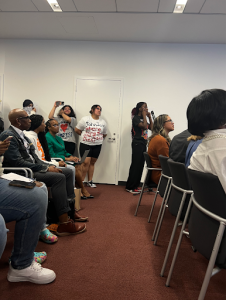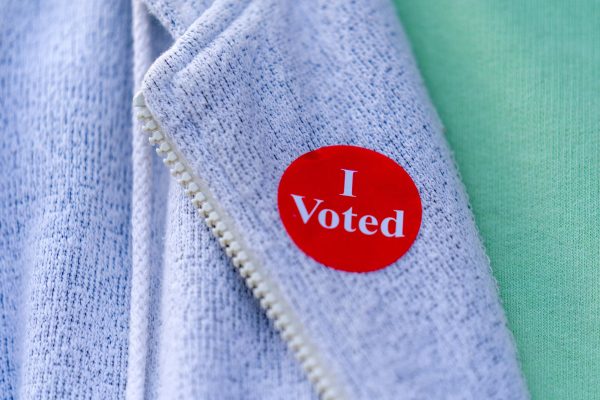New Yorkers Turn to Pet Adoption to Get Through COVID-19
June 10, 2021
In September 2020, Skyler Martinez and her girlfriend found two kittens behind a parking lot in Sunset Park. The animals were only a few weeks old, and one had an infected eye. After nursing them back to health, her girlfriend asked if she would consider adopting one.
“I had nothing holding me back—I had all the time in the world to take care of this tiny, newborn kitten. I knew it would require a lot of work, plus I was living by myself,” Martinez recounts. “But I knew this was the perfect time.”
Martinez is one of the thousands of New Yorkers who adopted a pet in 2020. The Animal Care Centers of NYC, an organization that partners with more than 200 shelters and foster programs across the five boroughs, estimated that over 16,000 pets were adopted and more than 6,000 were placed in a foster home throughout the year. That compares to a little more than 8,000 pets adopted the previous year, according to the organization’s 2019 Annual Report.
So, what is the reasoning for the near 100% increase in pet adoptions between 2019 and 2020?
While the reason for each pet adoption may differ, animal shelter volunteers have speculated that the pandemic may have been a factor. Nell Johnson is a volunteer at Best Friends New York, one of the programs that the ACC partners with. Johnson, who mainly did in-person volunteer work before the pandemic, states that she “felt like she had no choice” but to foster a pet during the pandemic.
“Normally, I’d be scared of the commitment that fostering a pet requires, but I couldn’t turn my back on these animals,” she said. “I felt like fostering a pet was the best way to help.”
Journalists have also attributed the adoption increase to COVID. An article by Reuters profiles a New Yorker, Jocelyn Tsai, who adopted a mixed-breed dog named Archer to “stave off the loneliness and isolation from social distancing restrictions imposed to slow the spread of coronavirus.”
Like Tsai, Martinez found comfort in her new four-legged companion. Martinez, who is a student at Borough of Manhattan Community College, says that “life during the pandemic was difficult and lonely to manage” and that she sunk into a deep depression during the height of COVID-19. However, that all changed after she officially adopted Jack, the abandoned grey and white tabby with the infected eye that her girlfriend found in the parking lot.
Soon after she adopted Jack, Martinez learned that her parents had contracted COVID-19. Because they live in St. Louis, Martinez was unable to help them. “I think he knew I was sad,” she says, referring to Jack. “He was there to cuddle with me and make me laugh with his silliness and kitten shenanigans.”
The relief that Martinez and Tsai felt after adopting a pet is not an anomaly, and there may be a psychological explanation for it.
“In a general sense, people have pets for two reasons; the first is that people tend to gravitate towards taking care of others, and when there’s no human to take care of, pets can satisfy that feeling,” said Dr. Peter Deri, a licensed Psychologist. “Pets interact with us with an absence of judgment in a way that humans do not.”
While Dr. Deri knows that there are exceptions to these reasons, he offers another explanation as to why people may turn to pets for support during COVID.
“Pets are like a blank slate because we can project anything onto them and enjoy the story,” he said. “There are lots of examples of people projecting their state of mind onto their pets, and I am one of them.” He also recalled that his two cats that are “anxious and frenetic at times, just like me!”
Because we cannot read a pet’s mind, Dr. Deri admits that other psychologists may disagree with him, but he believes that “the uncertainties, anxieties, and lack of control we all feel from COVID makes a relationship with a pet more therapeutic. That is, the relationship triggers feelings that are the opposite of what we feel so much of the time.”
Martinez and Dr. Deri both said yes to recommending pet adoption for people suffering from mental health issues. Martinez also offers advice directly to CUNY students, stating that if they have the resources and time to do so, “getting a pet might be the perfect emotional support for you.”
Johnson agrees and realized what fostering has done for her.
She ended up adopting the cat she fostered, a tabby she named Corduroy (or ‘Cord’ for short) but states that there are other ways to help animals and your own mental health. “I would encourage people to foster a pet if they’re scared of committing to adoption” she states. “Fostering Cord helped me cope with the feelings of isolation that I didn’t even know I had.”
With the vaccine rollout, many shelters in New York City are slowly returning to in-person volunteering. To volunteer for a shelter, or foster/adopt a pet, visit NYCACC.org for more information.











